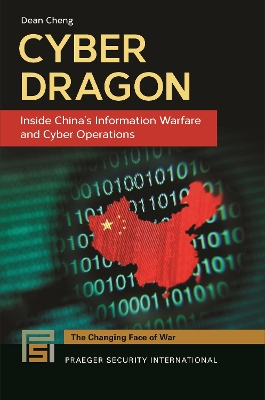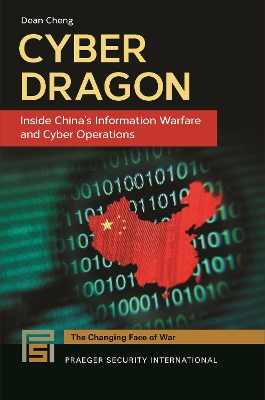Praeger Security International
2 total works
This book provides a framework for assessing China's extensive cyber espionage efforts and multi-decade modernization of its military, not only identifying the "what" but also addressing the "why" behind China's focus on establishing information dominance as a key component of its military efforts.
China combines financial firepower—currently the world's second largest economy—with a clear intent of fielding a modern military capable of competing not only in the physical environments of land, sea, air, and outer space, but especially in the electromagnetic and cyber domains. This book makes extensive use of Chinese-language sources to provide policy-relevant insight into how the Chinese view the evolving relationship between information and future warfare as well as issues such as computer network warfare and electronic warfare.
Written by an expert on Chinese military and security developments, this work taps materials the Chinese military uses to educate its own officers to explain the bigger-picture thinking that motivates Chinese cyber warfare. Readers will be able to place the key role of Chinese cyber operations in the overall context of how the Chinese military thinks future wars will be fought and grasp how Chinese computer network operations, including various hacking incidents, are part of a larger, different approach to warfare. The book's explanations of how the Chinese view information's growing role in warfare will benefit U.S. policymakers, while students in cyber security and Chinese studies will better understand how cyber and information threats work and the seriousness of the threat posed by China specifically.
China combines financial firepower—currently the world's second largest economy—with a clear intent of fielding a modern military capable of competing not only in the physical environments of land, sea, air, and outer space, but especially in the electromagnetic and cyber domains. This book makes extensive use of Chinese-language sources to provide policy-relevant insight into how the Chinese view the evolving relationship between information and future warfare as well as issues such as computer network warfare and electronic warfare.
Written by an expert on Chinese military and security developments, this work taps materials the Chinese military uses to educate its own officers to explain the bigger-picture thinking that motivates Chinese cyber warfare. Readers will be able to place the key role of Chinese cyber operations in the overall context of how the Chinese military thinks future wars will be fought and grasp how Chinese computer network operations, including various hacking incidents, are part of a larger, different approach to warfare. The book's explanations of how the Chinese view information's growing role in warfare will benefit U.S. policymakers, while students in cyber security and Chinese studies will better understand how cyber and information threats work and the seriousness of the threat posed by China specifically.

